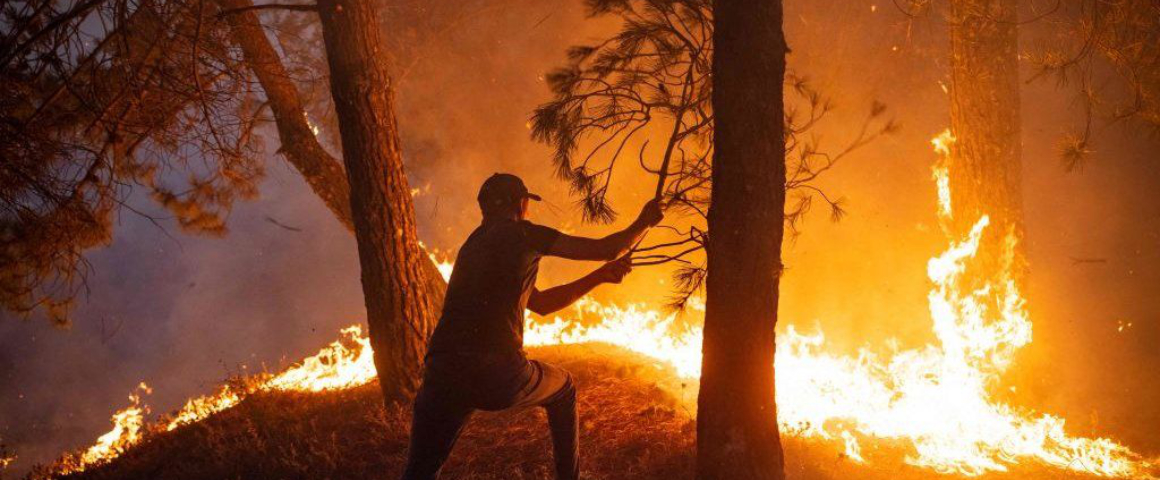By Corinne Benson
During the Alberta election this spring, one of my door-knocking lines was that the debate between the two major contenders – the New Democratic Party and the United Conservative Party – was lacking in focus on climate change issues and the oil industries’ role.
Among those who had seen the debate, there was a lot of agreement. With a summer that focused on evacuations from wildfires in the Northwest Territories, BC and Alberta, and with constant smoke and heat warnings, the planet’s climate problems seemed to be literally in everyone’s face, nose and lungs.
In May, smoke from the wildfires resulted in air quality index readings of 10+ in Edmonton – the highest, and worst on the planet. Alberta Wildfire called 2023 the most destructive spring for wildfires in the province’s history.
Causes of this situation include climate change, lightning, arson, and a long history of fire suppression which has resulted in excessive dry underbrush.
In light of this, the Alberta government’s role leading up to this summer is shocking.
The government has made budget cuts to firefighting for several years and these cuts are still ongoing (which is hard to believe, given the difficulties of the past summer). Rural areas which had to be evacuated are paying a heavy price for their support of the UCP. The impact on First Nations that traditionally rely on the forests is particularly severe, as these fires continue into the future.
Since 2019 the UCP has gutted Alberta’s firefighting capability by a whopping $30 million, roughly a 25 percent reduction, and in 2020 they eliminated a half-million-dollar fund used to train volunteer firefighters. The latter cut was done despite a warning from the Alberta Fire Chiefs Association that it would “greatly impact service.” Shortly after their election in 2019 the UCP closed 26 active fire towers across the province – this was a 20 percent reduction in the number of fire towers.
An issue about which a lot has been written is the elimination of Alberta’s elite aerial wildfire crew of 63 rappelling firefighters stationed across the province. This program, called Rapattack, had been in service for over 40 years. It was able to get firefighters into the area more quickly than roads and reduced firefighter fatigue from dragging equipment over rough territory. By arriving on the scene sooner, Rapattack was able to cut off smaller fires and prevent them from combining.
Labour issues were part of this as well, as the UCP wanted to dangle firefighters beneath flying helicopters and deposit them at the fire site, rather than having them rappel. Transport Canada fortunately blocked this, stating that it was unsafe. But despite this and warnings from experienced firefighters, the government went ahead and cut the wildfire rappel program.
Furthermore, the loss from fires in Alberta could have been lessened with better surveillance, predictive intelligence and more water bombers, as well as by retaining 50 percent of experienced personnel lost, better volunteer training and a longer wildfire budget season.
Many newspapers have tried to publicize the problem here, but political action needs to follow if we are going to get answers and solutions. Richard Merry of the Council of Canadians Edmonton Chapter is hoping to get some political work going through petitions, letters to media, expert-led town halls and a forum for political parties to put forward what they are planning to do about the situation.
A key question is how to factor in other province’s programs and budgets, since the country has been burning from sea to sea.
To be successful, efforts at getting political action to address this issue will all need widespread support.
Get People’s Voice delivered to your door or inbox!
If you found this article useful, please consider subscribing to People’s Voice.
We are 100% reader-supported, with no corporate or government funding.




